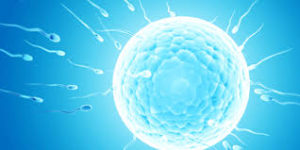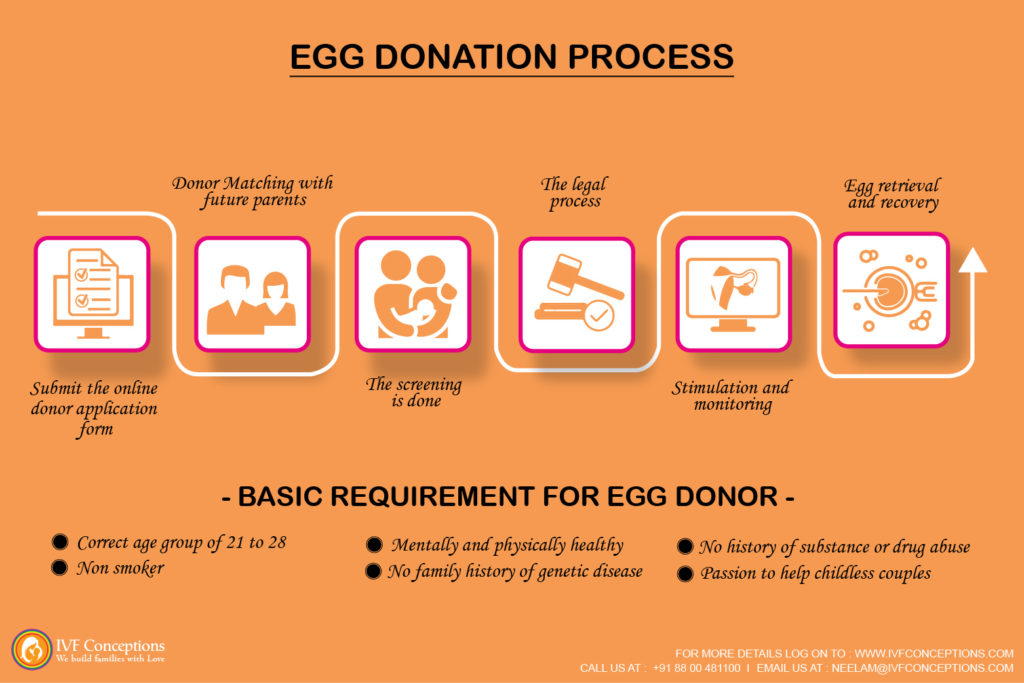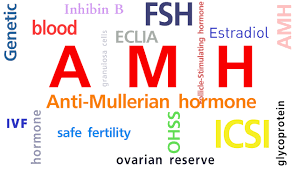How many eggs are women born with, well more than we ever use!


Understanding the intricacies of female fertility is a subject of great importance for many women. One particular question that often arises is: “How Many Eggs Are Women Born With?” This question touches upon the fundamental aspect of a woman’s reproductive health and can provide valuable insights into her fertility potential.
In this section, we will delve into this fascinating topic, shedding light on the formation of eggs and offering a brief overview of the female reproductive system.
In this blog post, we will dive into the intriguing world of female fertility and explore the question: How Many Eggs Are Women Born With? Understanding the number of eggs a woman has at birth and how it affects her fertility can provide valuable insights for family planning and reproductive health.
The number of eggs a woman is born with, also known as her ovarian reserve, is a crucial factor in her reproductive journey. These eggs serve as the foundation for potential pregnancies and play a pivotal role in determining fertility.
Understanding the initial egg count and how it evolves over time can help women make informed decisions regarding family planning and fertility preservation.
By exploring the factors influencing egg count and its relationship with fertility, we can empower women with the knowledge to take charge of their reproductive health.
Begin your surrogacy journey with IVF Conceptions today!
Mobile: +91-8800481100 ( WhatsApp, Line, Viber)
Email: neelam@ivfconceptions.com
Web: www.completesurrogacy.com

 The Formation of Eggs
The Formation of Eggs
A brief overview of the female reproductive system.
To comprehend the formation of eggs, it is essential to have a basic understanding of the female reproductive system.
The female reproductive system consists of various organs, including the ovaries, fallopian tubes, uterus, and vagina.
The ovaries, located on each side of the uterus, house the eggs and play a central role in the reproductive process. Throughout a woman’s life, the ovaries release eggs during the menstrual cycle, creating the potential for fertilization and pregnancy.
The number of eggs a woman is born with is determined during fetal development and remains relatively stable throughout her lifetime. However, factors such as age and external influences can impact the quantity and quality of these eggs.
Before diving into the number of eggs, it’s essential to understand how eggs are formed. During fetal development, the ovaries begin to develop and contain primordial follicles, which are the foundation of eggs. These follicles then undergo a maturation process and become primary oocytes.
By the time a female baby is born, her ovaries typically contain around one to two million eggs.
Fact check about eggs in women
Many cells are not noticeable to the naked eye: a microscope is required to view them. An exception is the human egg cell, which is, in reality, the biggest cell in the body and is noticeable with no microscope. This is quite impressive. Egg cells are huge in contrast to the other human cells. It has a diameter of 100 microns.
But from where do these eggs come from? Are they produced during the lifetime? Well to know the answers to these questions we need to delve into some biology.
Estimating the Number of Eggs
Understanding the number of eggs a woman is born with, known as her ovarian reserve, is crucial for fertility planning. Various factors can affect the number of eggs, and research studies provide insights into estimating ovarian reserve.
In this section, we will explore the factors influencing the number of eggs women are born with, examine research studies on estimating ovarian reserve, and highlight the importance of understanding ovarian reserve for fertility planning.
Factors that affect the number of eggs a woman is born with
- Genetics: The number of eggs a woman is born with is determined by her genetics. Each woman has a unique genetic makeup that influences her ovarian reserve. Genetic factors play a significant role in determining the initial number of eggs present at birth.
- Maternal factors: The maternal environment during pregnancy can impact the number of eggs a woman is born with. Factors such as maternal age, health, and lifestyle choices can influence the development and health of the fetus’s ovaries, affecting the ovarian reserve.
- Environmental factors: Environmental factors, including exposure to toxins, chemicals, and certain medications, may affect the number of eggs a woman is born with. These factors can potentially impact ovarian development and the overall ovarian reserve.
- Age: Age is a crucial factor that affects the number of eggs in a woman’s ovarian reserve. As women age, the quantity and quality of their eggs decline. The number of eggs gradually decreases throughout a woman’s reproductive years, leading to a reduced ovarian reserve.

 Research studies on estimating the ovarian reserve
Research studies on estimating the ovarian reserve
- Anti-Müllerian Hormone (AMH) testing: AMH is a hormone produced by developing follicles in the ovaries. AMH levels in the blood can provide an estimate of a woman’s ovarian reserve. Research studies have shown that AMH testing is a reliable indicator of the number of remaining eggs and can assist in assessing fertility potential.
- Antral follicle count (AFC): AFC is a method used during a transvaginal ultrasound to count the number of small follicles present in the ovaries. These follicles represent the pool of potential eggs. AFC is another valuable tool in estimating ovarian reserve and can provide insights into a woman’s fertility status.
- Follicle-stimulating hormone (FSH) testing: FSH is a hormone that stimulates the growth and development of follicles in the ovaries. High levels of FSH may indicate diminished ovarian reserve. FSH testing, combined with other diagnostic tools, can help assess a woman’s ovarian reserve and fertility potential.
Importance of understanding ovarian reserve for fertility planning
- Family planning: Knowledge of a woman’s ovarian reserve can guide family planning decisions. Understanding the quantity and quality of eggs can help individuals and couples make informed choices about the timing of pregnancies and the use of fertility treatments if needed.
- Fertility preservation: For women who wish to delay childbearing or face potential fertility challenges, assessing ovarian reserve can be crucial for fertility preservation. By understanding their ovarian reserve, women can explore options such as egg freezing to preserve their fertility for the future.
- Assisted reproductive technologies (ART): Estimating ovarian reserve is vital for individuals undergoing assisted reproductive technologies like in vitro fertilization (IVF). It helps fertility specialists determine the appropriate treatment protocols and optimize the chances of success.
Understanding the factors influencing the number of eggs women are born with, exploring research studies on estimating ovarian reserve, and recognizing the importance of ovarian reserve for fertility planning can empower individuals to make informed decisions about
Factors Affecting Egg Count
Several factors influence the number of eggs a woman is born with. Here are a few key factors to consider:
- Genetic Factors: The genetic makeup plays a role in determining the initial egg count.
- Maternal Age: The age of the mother at the time of conception can affect the number of eggs her daughter will have.
- Environmental Influences: Exposures to certain chemicals or environmental factors may impact egg development.
- Lifestyle Factors: Smoking, excessive alcohol consumption, and poor nutrition can potentially deplete the egg reserve.
Understanding Egg Count and Fertility in women
The number of eggs a woman has at birth does not directly correlate with her fertility. It’s important to understand the relationship between egg count and fertility:
- Ovarian Reserve: The term “ovarian reserve” refers to the quantity and quality of eggs a woman has in her ovaries. While a larger egg count is generally associated with better fertility potential, it is not the sole determinant.
- Age and Fertility: As a woman ages, the number of eggs and their quality decline, which can impact fertility and increase the chances of complications during pregnancy.
- Other Factors: Besides egg count, factors like overall health, hormone levels, and reproductive disorders also contribute to fertility.
Preserving Fertility in the Women
If you are considering preserving your fertility, here are some options to explore:
- Egg Freezing: Egg freezing, also known as oocyte cryopreservation, allows women to store their eggs at a younger age for future use.
- Fertility Treatments: Assisted reproductive techniques such as in vitro fertilization (IVF) can be utilized to enhance fertility.
- Lifestyle Choices: Maintaining a healthy lifestyle, including a balanced diet, regular exercise, and avoiding harmful substances, can help preserve fertility.
More topic:
How does IVF with egg donation work?
All about the egg donation process
All about egg freezing in women
How many eggs are there when a woman is born with
You only have all the eggs you are born with. In your lives, you will not create any fresh eggs; however, when still in the womb, you have the highest number of eggs: a 20-week-old female fetus has around 7 million eggs. When you are born, that is decreased to about two million and you would have between 300,000 and 500,000 eggs at the time of your menstruation.
However, because it is natural and ongoing, completely independent from birth control pills, pregnancy, nutritional supplements, or even health or lifestyles, your egg supply is continuously reduced.
During the twenties- and early thirties, the fertility will be better so does the number of eggs but with the onset of menopause, it all goes downward. You can’t get pregnant naturally the following menopause.
Some FAQs regarding egg production in a woman:
Why doesn’t a woman menstruate at the beginning itself?
Well, this is an interesting question. By now you would have learned that a female child is born with all the egg reserve. So, now the question is if she has all the eggs, in the beginning, why doesn’t she menstruate from the beginning itself? It happens because of the hormonal changes. Chemical messengers are hormones.
The period of the menstrual cycle is held to puberty by the girl. Puberty starts when a gonadotropin-releasing hormone is formed in the brain. GnRH in effect activates the hypophyseal gland to generate the hormone that controls follicles (FSH). FSH initiates the development of eggs and increases estrogens.
The ovaries release estrogen and progesterone from the female hormones. The uterine lining (or womb) is caused by these hormones and gets ready to nurture the fertilized egg. The lining breaks down and bleeds because when no fertilized eggs are formed. And the same cycle happens again.
What happens to eggs as we grow older?
When we grow older, the same thing happens to our cells and the female egg cell. Even if women are born with millions of eggs, their quality decreases over time. Many die before puberty, meaning that by the time menstruation commences, we’re left with about 700,000 egg cells.
A woman loses her egg cells each month, and a woman would probably have less than 1000 egg cells left when she is under menopause. It is a common misconception that the natural deterioration of female egg cells can be caused by hormonal birth control or pregnancy. The eggs get deteriorate over time.
What happens during menopause?
You will no longer produce estrogen when you run out of your supplies of viable eggs if you’re going through menopause. You may be among those women who can naturally have biological children in their mid- or even after-forties if you have been born with a greater number of eggs.
How many eggs are produced each month?
The good news is that every month after puberty the number of eggs that die decreases. A woman loses about 1,000 (immature) eggs every month after beginning her menstrual cycle. The majority of women release an egg cell per cycle. Some women can release two egg cells per cycle so that paternal or fraternal twins are conceived. When the fertilized egg cell is divided into two, identical twins are produced.
In the same amniotic bag, identical twins develop, and they are genetically equivalent, unlike fraternal twins. Over a lifetime the ovaries will release approximately 500 mature eggs.
What is the lifespan of an egg after ovulation?
The released female egg cell will soon deteriorate and the fertile window will begin to close once ovulation has occurred. The egg cell will die after 12-24 hours and it will not take until the next cycle to become pregnant again.
That is why the day before ovulation is probably the best time for conceiving. Sperm is stronger and can live in the female reproductive tract for up to five days in comparison with the egg cells when released.
Conclusion
Understanding the number of eggs women are born with and its implications for fertility is crucial for reproductive health planning. While the initial egg count is influenced by various factors, age, and overall health play significant roles in determining fertility. By exploring options like egg freezing and adopting a healthy lifestyle, women can take proactive steps to preserve their fertility and make informed decisions about their reproductive journey.
Remember, the number of eggs you have is just one piece of the puzzle—empower yourself with knowledge and take charge of your reproductive health.
So, how many eggs are women born with? well, by now you would have understood the logic behind menstruation and menopause and how eggs are affected with age. It might be easier now to plan a pregnancy if you are fertile, this science can also be used to prevent pregnancy.
If you come across any mensuration-related issues like excessive pain, no mensuration or scanty mensuration, or irregular menses, you should get in touch with your gynecologist
If you’d like to learn more about IVF, Egg Donation, or surrogacy services globally, check out the rest of our website: IVF Conceptions. We offer legally secure and affordable surrogacy consulting services for FREE.
Begin your surrogacy journey with IVF Conceptions today!
Mobile: +91-8800481100 ( WhatsApp, Line, Viber)
Email: neelam@ivfconceptions.com


